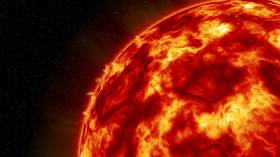Elon Musk’s SpaceX wins close to $1bn in preliminary taxpayer funding to unleash broadband across rural US
SpaceX has tentatively won a fat payday from the US government to supply broadband internet access to 10 million rural Americans, beating out satellite-based competitors for the privilege of blocking out the night sky.
Tesla tycoon Elon Musk’s space exploration company has netted $885,509,638 in government funding to be doled out over the next 10 years to beam high-speed internet access to hundreds of thousands of American homes, the Federal Communications Commission revealed on Monday.
Also on rt.com Weapons dropped from orbit anywhere on Earth within an hour? DoD asks SpaceX to prove it’s viableThe agency published the results of phase I of its $16 billion Rural Digital Opportunity Fund broadband auction, which saw SpaceX come in financially behind just two conventional internet service providers – and far ahead of any of its satellite-based competitors. The only other low-earth orbit satellite provider who took part in the auction, Hughes, netted a paltry $1.3 million.
While conventional broadband providers Charter Communications and the Rural Electric Cooperative Consortium won more government money than SpaceX, Musk’s company – via its satellite subsidiary Starlink – will serve 35 states, the most of any of the auction winners. Some 642,925 households in rural areas from Wyoming to New York will receive satellite broadband if SpaceX’s long-form final proposal is accepted.
SpaceX and the other winning companies must submit a more detailed proposal by the end of January in order to secure FCC funding. Starlink's broadband delivery has thus far performed well, but remains in the beta testing phase. Wannabe-early adopters can participate in the “Better than Nothing Beta” test for the not-so-low price of $499 for a one-time satellite hookup and $99 per month after that. The company hopes to offer its service to the public by mid-2021.
Also on rt.com Night sky ‘no longer the norm’: Scientists say Elon Musk's satellite network will permanently mar our view of the starsThe rollout of Starlink’s high speed broadband across the American countryside will be paid for by the US taxpayer – which is unlikely to sit well with those concerned about Musk’s multitudinous satellites clogging up their view of the sky. A chorus of astronomers and other scientists have already warned that the ever-growing constellation of Starlink satellites in low-earth orbit illuminates the night sky too much to see distant stars and planets.
Witnessing SpaceX’s taxpayer windfall may light a fire under some of Musk’s competitors. Fellow space-enthusiast billionaires Richard Branson and Jeff Bezos have both floated the idea of launching their own herds of satellites to deliver high-speed internet access around the world.
Like this story? Share it with a friend!













